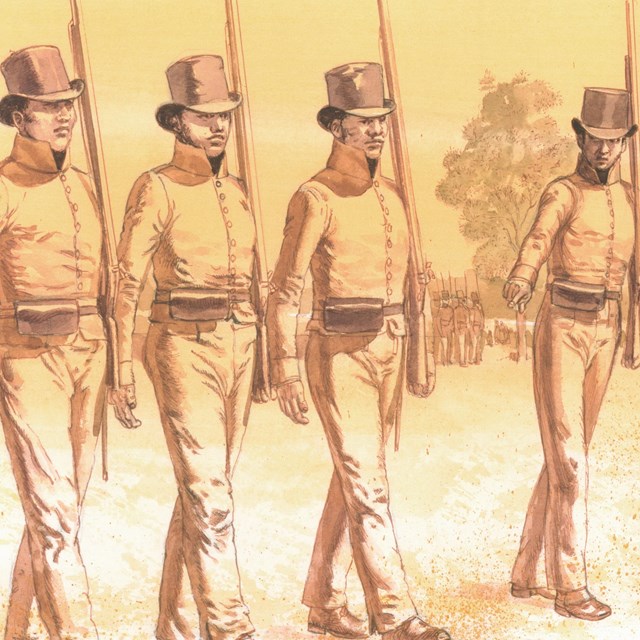
NPS When the British arrived in the Chesapeake Bay in 1813, enslaved people sought their freedom by rowing out to British boats, usually in the night. But such attempts were relatively small until the spring of 1814 when Vice Admiral Alexander Cochrane issued a proclamation on April 2, offering individuals who were residents of the United States and received on board any British Royal Navy ship, the opportunity to emigrate with their families to British territories in North America and the Caribbean as "free settlers." The strategic wording of the proclamation did not explicitly refer to enslaved people, though Cochrane did intend to draw the enslaved to the British side. The British targeted the Chesapeake Bay, using the region's extensive network of easily navigable waterways with direct access to the United States' economic and political centers in Baltimore and Washington. They capitalized on enslaved African Americans' desire for freedom to employ their knowledge of the region's waterways and geography, and other skills, to weaken the American economy. In total, about 4,000 freedom seeking African American men, women, and children gained their freedom by joining the British. 
© Gerry Embleton Newly freed African Americans were given shelter at the British base on Tangier Island. There, about 200 of the men were trained and issued arms to fight side-by-side with British troops as a Colonial Corps of Marines, participating in many raids on the Chesapeake, including the British march on Washington, DC and the Battle of North Point. Members of the Corps assisted the British in planning these actions, often having firsthand knowledge of the waterways, roads, and paths. Meanwhile, many of the wives, children, and other relatives of the Colonial Marines remained in British protection on Tangier Island until the end of the war.
After the war Great Britain resettled the former enslaved people mostly in the Canadian Maritime Provinces or in Trinidad. One community in Nova Scotia settled in what they called Africville. Descendants in Trinidad call themselves "Merikans.” Learn MoreClick here to learn more about the formation of the Colonial Marines. The Maryland State Archives has pulled together a database that features case studies on freedom seekers and their enslavers. The Nova Scotia Archives also features an article and list about the refugees who were resettled in to the region during and following the War of 1812. Researchers at Sotterley Plantation have identified several of the 48 enslaved people who left in June 1814 when British ships were anchored offshore in the Patuxent River. After the war, the plantation’s owner, John Rously Plater, submitted claims for compensation, listing the names of those “seduced and carried away.” Records show that James Bowie was given land in Trinidad. Stephen Coursey, Jack Leale, and Lewis Muroe were given parcels of land in Halifax, Nova Scotia. All were accompanied by their wives and children.
|
Last updated: September 24, 2025








